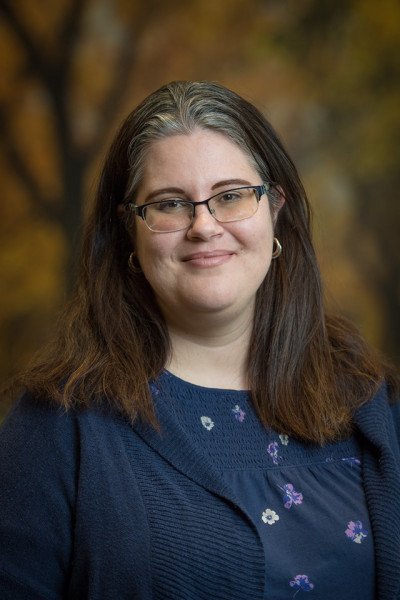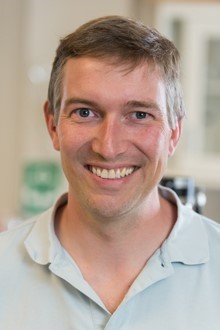The ColoradoSPH at CSU faculty have stepped up during the COVID-19 pandemic to provide important research and essential work in understanding the virus, how to slow the spread, and how to help end the pandemic. This work has had local, national and international impact.
ColoradoSPH at CSU faculty member Dr. Anita Pena, who is a Professor in the Department of Economics and a faculty member in the Global Health and Health Disparities concentration, has been working on understanding the health and work environments of farmworkers during the COVID-19 pandemic. The goal of her research is to understand the risk to essential workers and their employers, to the food supply, and to rural health systems during this unprecedented time. An aging workforce and increased need and use of health care within the crop worker population has been associated with higher reported incidence of diabetes, asthma, and heart disease among workers over time. This makes this population more vulnerable to COVID-19 complications. There are also limits to sanitation and housing quality, which inflate the probability of the development of COVID-19 hotbeds.

“Our work helps to identify demographic and work-related characteristics that can be used for policy targeting such as the distribution of additional personal protective equipment and now also vaccines” said Dr. Pena
A first step in improving COVID-19 safety and protections for farm workers would be to prioritize workers who are most likely to face gaps in terms of formal worker protections when distributing additional PPE.
“Additionally, a long-term plan then would be to minimize and hopefully eventually eliminate structural gaps in sanitation access and in housing infrastructure as a way to both support future public health responses, and to just generally support the wellbeing of workers at both emergency and nonemergency times”.
Since farmworkers were deemed essential workers early in the pandemic, Dr. Pena and her team think they should be among the first groups eligible for the vaccine.
Dr. Meara Faw, who is an Assistant Professor in Communication Studies and is a faculty member in the Health Communication concentration, is also doing important COVID-19 work. In partnership with Dementia Together, she worked to collect and analyze the experiences of adults caring for a loved one with dementia during COVID-19. This was done through their participation in virtual support groups as well as through engagement in a virtual caregiver training class focused on coping and enhanced communication.
“We are finding that care partners benefit greatly from having the opportunity to connect with others virtually during the COVID-19 pandemic” she said.

These groups are sources of support, humor, camaraderie, information, and a chance for caregivers to work through the challenges they face during an unprecedented global pandemic. Among the preliminary data, caregivers report enhanced communication with the person with dementia as well as significant increases in their experience of positive aspects of caregiving.
“We hope to continue this research, gaining greater insight into how virtual experiences might open up opportunities for care partners and people with dementia to connect with valuable resources and sources of support even beyond the current COVID-19 pandemic” said Dr. Faw.
Dr. John Volckens, who is a Professor in the Department of Medical Engineering and a faculty member in the Global Health and Health Disparities concentration, has also been front and center in the fight against COVID-19. His lab has become the official testing site for respirators and N95 surgical masks for distribution throughout the state of Colorado. These forms of personal protective equipment (PPE) are critical to keep front-line medical workers who are battling COVID-19 safe, and Dr. Volckens and his team are in charge of evaluating the safety and efficacy of protective gear that are destined for Colorado hospital workers.
“Our role is to initiate and coordinate testing and provide recommendations to the state on distributing such equipment” said Dr. Volckens.

Dr. Volckens is also working with Dr. Dan Goble, director of the School of Music, Theater, and Dance at CSU, to determine how far airborne particles and droplets are projected by those playing wind and brass instruments, singers, actors and dancers and whether steps can be taken to protect both performers and audience members from the risks of co-exposure to COVID-19. The interdisciplinary team will be recruiting volunteers to sing or play their instrument in a human exposure facility, which can be used to measure human aerosol emissions and exposures in a clean, versatile environment.
Dr. Volckens anticipates that his research in these areas will continue for at least the next few years.
“In our efforts to help the public protect themselves from airborne flu exposure, we’ve taken such a deep dive that I can’t see us emerging from this deep pool for a while. There’s too many important questions that remain unanswered” he said.
Dr. Volckens knows how important his work is to our current time and continues to want to help his community.
“The most rewarding part of this work is seeing people, from community members to policy makers, use our science to make informed decisions on protecting their health and the health of the community.”
COVID-19 has brought many challenges to the field of public health, and many faculty members in the ColoradoSPH at CSU have met those challenge head on. Their work will continue to have lasting impact for many years to come as they play a crucial part in understanding and ending the pandemic.
Written by Megan Jansson
